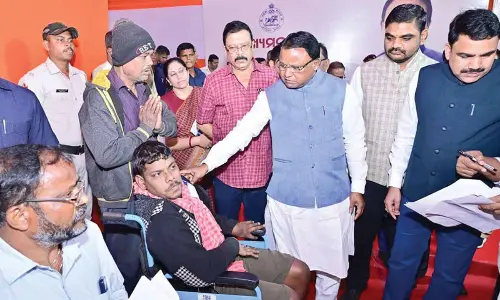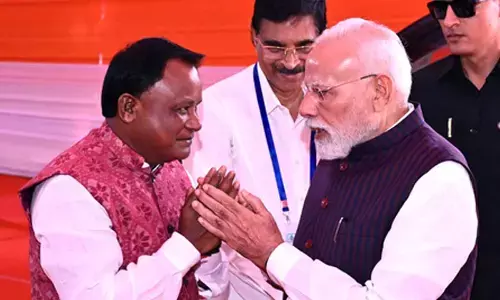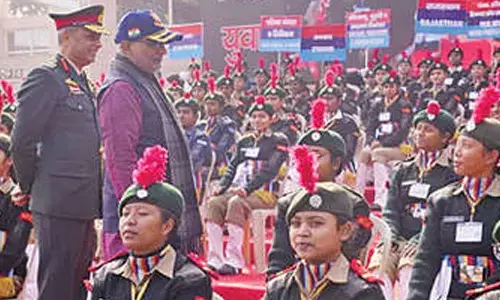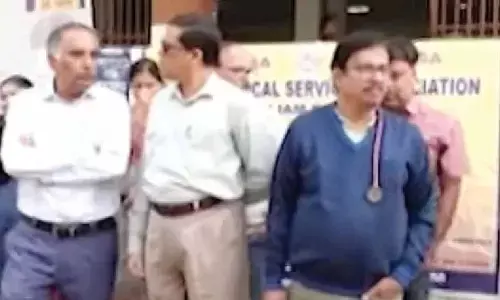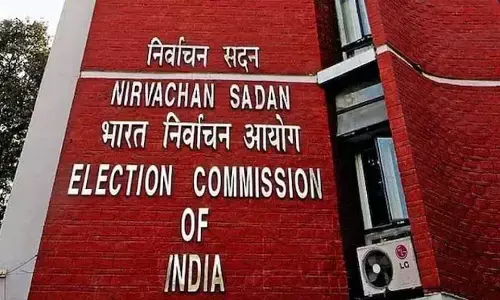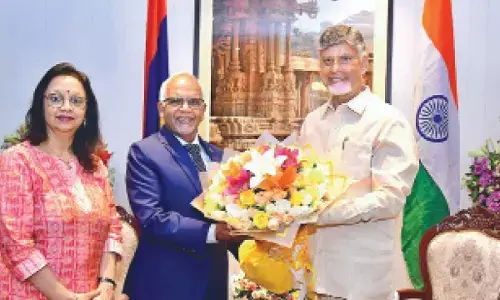Those little houses of many mirrors
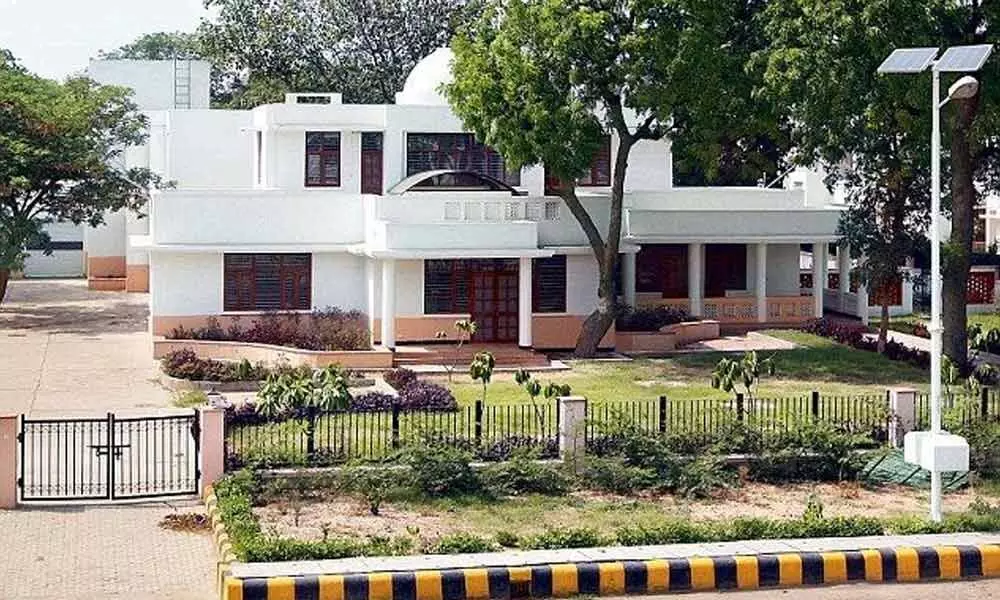
Those little houses of many mirrors
I was posted as Collector of Krishna district and, at last, was able to live in a spacious bungalow
I was posted as Collector of Krishna district and, at last, was able to live in a spacious bungalow. The pleasure, however, proved to be short-lived as the Governor of Andhra Pradesh, Sharda Mukherjea, after a visit to Nagarjunasagar (details of which I have explained elsewhere in this column), literally hijacked me to the Raj Bhavan!
The two Governors with whom I had the privilege and honour to work with, Sharda Mukherjea and K C Abraham were extremely considerate and kind. Those two years proved extremely eventful and many significant developments took place which I have mentioned elsewhere in this column. While the posting offered little by way of real work, there was plenty of activity.
On the personal front, one highlight was that the house in which we lived was extremely well appointed and new within the premises. Another was watching TV for the first time. One sat in the Durbar Hall of Raj Bhavan and, together with scores of the staff, watched the India - Pakistan cricket series live on the telly.
Following K C Abraham's decision, to keep his promise to me to send me to the field after a year with him, I was posted to Krishna district as Collector. One was finally promoted into occupying the bungalow which one, as Assistant Collector (under training), had watched wistfully from a distance years ago! And, strangely enough, another house which was allegedly haunted!
Once again the posting failed to run its course. Following a tiff I had with the then Chief Minister, Channa Reddy, I was shifted to Andhra Pradesh Fisheries Corporation (APFC), with its Head Office at Visakhapatnam – not in the summary and abrupt fashion the Chief Minister was known for, but after a friendly chat during which I was practically persuaded that it was a better place to go to!
It proved to be an exciting assignment with many interesting aspects of which I have described elsewhere in this column. The assignment was professionally satisfying and personally comfortable, except for the fact that one had to go through a lot of hassles to get the children admitted in good schools at Visakhapatnam. I was able to rescue the Corporation from near disaster but, precisely when an exciting scenario was unfolding, was forced to leave, on account of circumstances beyond my control.
I headed to Delhi to take over as the Secretary to the Vice President of India, thanks to a recommendation to Vice President Hidayatullah by my former boss Sharda Mukherjea. The Vice President had just moved from 9, Janpath (Sonia Gandhi was the previous occupant) to 26 Maulana Azad Road, the traditional residence of the Vice President of India.
Not having originally been greatly enthusiastic about the posting (except for the sense of relief of getting away from the state, when the politics was becoming a little suffocating, I must confess to feeling disappointed that, once again, we were destined to live in an outhouse of a bungalow which probably, this time, we would probably never!
The stint in the Upa Rashtrapati Bhavan also proved to be a challenging and event filled period many interesting aspects of which I have described elsewhere in this column.
Following a minor misunderstanding with the Vice President and my desire to return to the state coinciding with an intention from the newly formed TDP government, headed by NTR, to join the Chief Minister's office, I decided to return to Hyderabad. And, as a specially chosen Joint Secretary in the Chief Minister's office, no less, had to live in the smallest flat we ever lived in, in a nondescript apartment house called Mayuri Apartments!
My tenure in NTR's office was one of the most high profile and productive postings in my service. Many exciting things happened, some of which caused me sadness, and other disappointments, which I have recorded elsewhere in these columns.
That posting was followed by assignments which included the Registrar of Cooperative Societies of the State, the Excise Commissioner, the Civil Supplies Commissioner, the Secretary, (Food and Agriculture), the Secretary to the Chief Minister (when N. Janardhan Reddy was the Chief Minister) and, before I left for Delhi for a stint in the Government of India, a stint as Secretary (Agriculture and Cooperation) of the State. It was during that period that we moved from Mayuri Apartments to a flat in Kranti Sikhara, we then moved into an independent house in Sanjeev Reddy Nagar Colony and, finally, to Kundan Bagh Colony. It was in Kundan Bagh that I first cultivated the habit of regular physical exercise, using a gym.
I joined as a Joint Secretary in the Department of Agriculture Cooperation (DoAC) of the Ministry of Agriculture (MoA) of the government of India in January, 1995. I stayed for a long period in Delhi, a period that had its own interesting and disappointing moments, recorded elsewhere in this column.
I was houseless when I landed in Delhi, and the professional environment was unfriendly and intimidating. After seven long months in the A P Bhavan I was finally rescued by the kindness of my friend Peter Hasan who managed to get me an allotment in Chanakyapuri. A friend had managed what all my contacts including some in the Prime Minister's office could not!
There followed stays in two flats in Chanakyapuri over my stint in the government of India for the next eight years, an eventful period many details of which I have covered elsewhere in this column.
Following a request from the then Chief Minister Chandrababu Naidu, I returned to the state as the Chief Secretary, and had the pleasure of being the first occupant of a newly remodelled, fully furnished bungalow situated in a large compound, once again in Kundan Bagh.
There are other aspects of life in which blind faith, rather than scientific reasoning, guides the actions of persons. Take, for instance, the case of superstitions about numbers about relying on signs or omens, or to use the Indian equivalent of the word 'sakunams' (or as the people in the northern parts of India would call them 'Shaguns').
I, myself, cannot claim to be immune to the weakness. While these signs maybe "shadowy reminiscences of antique credulity" as A.G. Gardiner called them, most of us are influenced by them though we may not admit it. How many of us can resist the temptation of consulting an astrologer, a palmist or a fortune – teller about what lies in store for us in the future?
Some of the most educated and successful political leaders senior civil servants and business have all fallen prey to this temptation. History tells us that even Julius Caesar and Alexander the Great when no exceptions. To this day there are many streets in London without a house numbered 13. And, while hotels have no 13th floor in the western world, in China the number 4 is treated with similar fear. It was hoped that, with the advent of modern science superstition would be disinherited as the laws of nature had put man in his place. But, well into the 21st century mankind remains as much vulnerable to this phenomenon as it has ever been.
(To be continued)
(The writer is former Chief Secretary, Government of Andhra Pradesh)









